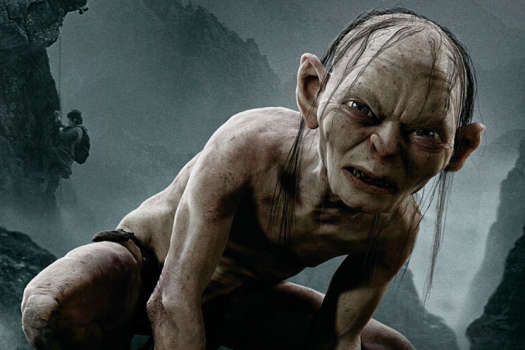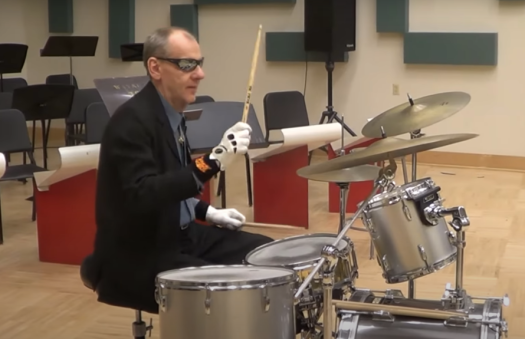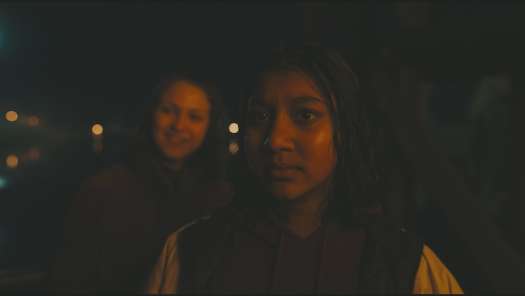The Trial of the Chicago 7 has many masters to serve. When a movie captures a notable moment in American history, staying true to the events that took place has some importance. To that end here, one of the subjects of Aaron Sorkin's new movie, Tom Hayden, is listed as a development consultant. On top of that, as a story with a large ensemble of big-name actors, the film needs to serve them with moments worthy of their talent.
Trial has a lot to cover, and it does so with some success. Most of all, it succeeds as work that's distinctly of its writer and director, like so many of his projects bare his unique stamp.
His film goes back to the 1968 Democratic Party convention in Chicago, where protestors are gathering to protest the Vietnam War. A hodgepodge of groups are meeting for this purpose, like student protestors (Eddie Redmayne and Alex Sharp), the Yippies (Sacha Baron Cohen and Jeremy Strong), and conscious objectors (John Carroll Lynch). The confluence of thousands of people speaking out and police and national guard pressing on them from every side makes eventual violent conflict seem inevitable.
When the convention and the protests are over, a change in the presidential administration brings about a new attorney general, who pressures a conflicted federal prosecutor (Joseph Gordon-Levitt) to make an example of some of the protestors. Eight men are gathered, most of whom defended by an offbeat lawyer (Mark Rylance).
Sorkin getting back in a courtroom feels natural. Many of his key works, like The West Wing and The Social Network, have a verbal sharpness that lend themselves to legal sparring. On top of that, he has also previously engaged with the legal system in a deeper way, like A Few Good Men and his recent stage adaptation of To Kill a Mockingbird.
The energy of his dialogue feels natural in that room. Sorkin can go all in on his classic dramatic screenwriting, with every character sounding off with precision in well-formed scenes that link and line up. This stands out more so than his filmmaking, though some moments, like an early bit of adventurously edited testimony, stand out as Sorkin stretching his filmmaking legs a bit. Same with the moments of protest chaos, something new for Sorkin that doesn't land, partially thanks to Daniel Pemberton's '60s rock-meets-military march score for these moments. Like his last directorial effort, Molly's Game, this film doesn't exhibit the balance and momentum other directors have been able to draw from his scripts.
The groups on trial are aiming to stopping the draft and the Vietnam War. You don't feel the urgency of this movement in Trial. More so, the momentum lies with their right to protest at all (which, obviously, feels timely at this moment). In this, the conflict comes between Rylance's steadfast defence and an unrelenting judge played by Frank Langella. His constant bias against the defence is one of the key issues that comes up again and again throughout the movie.
Beyond that, there's also bickering among the groups on trial. One fight is between Cohen's Abbie Hoffman and Redmayne's Hayden, the rebellious spirit of the 1960s made flesh butting heads with a pragmatic pretty face, each with similar goals but with certainly different methods. Late in the film, their relationship promises a deeper sense of resolution. With that in mind, though, their screen presences are imbalanced. Cohen takes on Hoffman's charisma as his own well enough; Hayden, as portrayed by Redmayne, has a deficit of magnetism.
A standout is Yahya Abdul-Mateen II, playing Black Panthers co-founder Bobby Seale. He's the eighth member of the Chicago 7 — although he's not considered a part of the group by the public, the press or the defendants. The cold denial of his rights time and time again stands in contrast to the more purely entertaining, quippy parts of this story. By necessity, he makes a relatively early exit from the film, but even if accuracy required that, the most interesting part of the film exiting lets some of the air out.
Sorkin is searching through this material and picking up interesting threads. As with a lot of his work, at bare minimum, it's entertaining and propulsive in the moment. By the end, the story is shaggy enough that a few standout performances and memorable moments can't draw them together in a completely satisfactory way.
(Netflix)Trial has a lot to cover, and it does so with some success. Most of all, it succeeds as work that's distinctly of its writer and director, like so many of his projects bare his unique stamp.
His film goes back to the 1968 Democratic Party convention in Chicago, where protestors are gathering to protest the Vietnam War. A hodgepodge of groups are meeting for this purpose, like student protestors (Eddie Redmayne and Alex Sharp), the Yippies (Sacha Baron Cohen and Jeremy Strong), and conscious objectors (John Carroll Lynch). The confluence of thousands of people speaking out and police and national guard pressing on them from every side makes eventual violent conflict seem inevitable.
When the convention and the protests are over, a change in the presidential administration brings about a new attorney general, who pressures a conflicted federal prosecutor (Joseph Gordon-Levitt) to make an example of some of the protestors. Eight men are gathered, most of whom defended by an offbeat lawyer (Mark Rylance).
Sorkin getting back in a courtroom feels natural. Many of his key works, like The West Wing and The Social Network, have a verbal sharpness that lend themselves to legal sparring. On top of that, he has also previously engaged with the legal system in a deeper way, like A Few Good Men and his recent stage adaptation of To Kill a Mockingbird.
The energy of his dialogue feels natural in that room. Sorkin can go all in on his classic dramatic screenwriting, with every character sounding off with precision in well-formed scenes that link and line up. This stands out more so than his filmmaking, though some moments, like an early bit of adventurously edited testimony, stand out as Sorkin stretching his filmmaking legs a bit. Same with the moments of protest chaos, something new for Sorkin that doesn't land, partially thanks to Daniel Pemberton's '60s rock-meets-military march score for these moments. Like his last directorial effort, Molly's Game, this film doesn't exhibit the balance and momentum other directors have been able to draw from his scripts.
The groups on trial are aiming to stopping the draft and the Vietnam War. You don't feel the urgency of this movement in Trial. More so, the momentum lies with their right to protest at all (which, obviously, feels timely at this moment). In this, the conflict comes between Rylance's steadfast defence and an unrelenting judge played by Frank Langella. His constant bias against the defence is one of the key issues that comes up again and again throughout the movie.
Beyond that, there's also bickering among the groups on trial. One fight is between Cohen's Abbie Hoffman and Redmayne's Hayden, the rebellious spirit of the 1960s made flesh butting heads with a pragmatic pretty face, each with similar goals but with certainly different methods. Late in the film, their relationship promises a deeper sense of resolution. With that in mind, though, their screen presences are imbalanced. Cohen takes on Hoffman's charisma as his own well enough; Hayden, as portrayed by Redmayne, has a deficit of magnetism.
A standout is Yahya Abdul-Mateen II, playing Black Panthers co-founder Bobby Seale. He's the eighth member of the Chicago 7 — although he's not considered a part of the group by the public, the press or the defendants. The cold denial of his rights time and time again stands in contrast to the more purely entertaining, quippy parts of this story. By necessity, he makes a relatively early exit from the film, but even if accuracy required that, the most interesting part of the film exiting lets some of the air out.
Sorkin is searching through this material and picking up interesting threads. As with a lot of his work, at bare minimum, it's entertaining and propulsive in the moment. By the end, the story is shaggy enough that a few standout performances and memorable moments can't draw them together in a completely satisfactory way.




